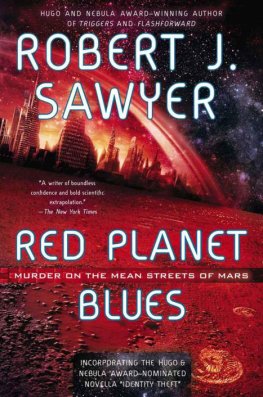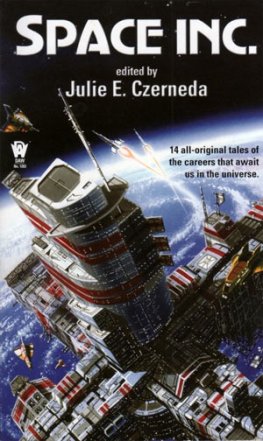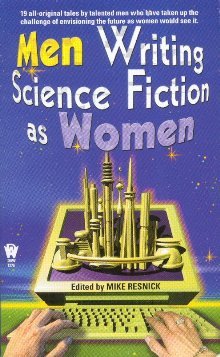Robert Sawyer - On the Surface
Here you can read online Robert Sawyer - On the Surface full text of the book (entire story) in english for free. Download pdf and epub, get meaning, cover and reviews about this ebook. year: 2003, publisher: DAW Books, genre: Science fiction. Description of the work, (preface) as well as reviews are available. Best literature library LitArk.com created for fans of good reading and offers a wide selection of genres:
Romance novel
Science fiction
Adventure
Detective
Science
History
Home and family
Prose
Art
Politics
Computer
Non-fiction
Religion
Business
Children
Humor
Choose a favorite category and find really read worthwhile books. Enjoy immersion in the world of imagination, feel the emotions of the characters or learn something new for yourself, make an fascinating discovery.
- Book:On the Surface
- Author:
- Publisher:DAW Books
- Genre:
- Year:2003
- ISBN:0-7564-0129-1
- Rating:3 / 5
- Favourites:Add to favourites
- Your mark:
- 60
- 1
- 2
- 3
- 4
- 5
On the Surface: summary, description and annotation
We offer to read an annotation, description, summary or preface (depends on what the author of the book "On the Surface" wrote himself). If you haven't found the necessary information about the book — write in the comments, we will try to find it.
On the Surface — read online for free the complete book (whole text) full work
Below is the text of the book, divided by pages. System saving the place of the last page read, allows you to conveniently read the book "On the Surface" online for free, without having to search again every time where you left off. Put a bookmark, and you can go to the page where you finished reading at any time.
Font size:
Interval:
Bookmark:
On the Surface
by Robert J. Sawyer
For once, at least, I grasped the mental operations of the Morlocks. Suppressing a strong inclination to laugh I stepped through the bronze frame and up to the Time Machine. I was surprised to find it had been carefully oiled and cleaned. I have suspected since that the Morlocks had even partially taken it to pieces while trying in their dim way to grasp its purpose.
H. G. Wells, The Time Machine, 1895The Morlock named Grach had heard from others of his kind what the journey through time was like, but those words hadnt prepared him for the reality. As he moved forward, the ghostly world around him flashed, now night, now day, a flapping wing. The strobing light was painful, the darkness a bandage too soon ripped away. But Grach endured it; although he could have thrown his pale-white arm in front of his lidless eyes, the spectacle was too incredible not to watch.
Grach held the left-hand lever steadily, meaning the skimming through tomorrows should have happened at a constant rate. But the apparent time it took for each day-to-night cycle was clearly growing longer. Grach knew what was happening of course; the others had told him. Earths own day was lengthening as the planet in its senescence settled in to be tidally locked, the same face always toward the sun.
Such perpetual day would have been intolerable for Grach, or any Morlock, except that the sun itself was growing much, much dimmer, even as it grew larger or as Earth spiraled closer to it; debate still raged among the Morlocks about which phenomenon accounted for the solar disk now dominating so much of the sky. The giant red sphere that bobbed about the western horizonnever fully rising, never completely settingwas a dying coal whose wan light was all concentrated in the red end of the spectrum, the one color that did not sting the eyes.
Eventually, as Grach continued his headlong rush into futurity, the bloated sun came to rest, moving not at all in the sky, half its vast bulk below the horizon where the still water of the ocean touched the dark firmament. Grach consulted the gauges on the console in front of him and began to operate the right-hand lever, the one that retarded progress, until at last all about him lost the ghostly insubstantiality it had hitherto been imbued with and coalesced into solid form. His time machine had stopped; he had arrived at his destination.
Of course, the invasion had been carefully planned. Other time machines that had already traveled here were arrayed about him in a grid, precise rows and columns, with every one of the squat saddle-seated contraptions, puzzles of nickel and ivory and brass and translucent glimmering quartz, packed close to each of its neighbors.
The grid, Grach knew, measured twelve spaces by ten: room for a hundred and twenty time machines, one for each adult member of the Morlock population. It had always seemed unfair that there were ten Eloi for every Morlock, but that was the ratio by which vegetarians typically outnumbered carnivores, by which prey had to accumulate in order to satisfy the appetites of predators.
There were still vacant spots in the grid, scattered here and there, where time machines hadnt yet come forward, or had perhaps overshot their targets slightly and would materialize an hour or two hence.
Grach took a moment to regain his bearings; this hurtling through time was unsettling. And then he dismounted, letting his narrow, curved feet sink into the moist sand of the great beach that spread out in front of him.
A leash of Morlocks shuffled over to greet Grach: it took him a moment in the odd red light to recognize Bilt and Morbon, females both, and the male Nalk.
Grach and his companions walked sideways, making their way out of the maze of time machines, moving out onto the great sandy beach. Grach found himself inhaling deeply; the air was thin. No wind stirred; no waves lapped the shore, although the vast expanse of water did heave slowly up and down, almost like a giants heart.
Andnow that giants were in his mindGrach thought briefly of the giant who had come to them, apparently from an ancient past. Assuming the counting of years reckoned by the gauges on his machine had started with a 1 near his own departure date, the giant man had come forward some eight thousand centuries. And yet that gulf was tiny compared to the amount Grach and the others had now leapt forward; millions of years separated him from the world of the Eloi and of the white marble sphinx and of the access portals to the Morlocks underground domain, each protected from the elements by a cupola.
Grachs reverie was quickly broken as Morbon shouted, Look! She was pointing, her arm appearing nauseatingly pink in the dim, ruddy sun. Grach followed her gaze, and
There they were.
Three of them, off in the distance.
Three of the giant crablike creatures that by this time had dethroned Morlocks from their dominion over the world.
Three of the enemy they had come to kill.
* * *The crabs were each as wide as Grachs armspan, and looked as though they might weigh double what he did. They had massive pincers; supple, whiplike antennae; eyes atop stalks; complex multi-palped mandibles; and corrugated backs partially covered by ugly knobs. Their many legs moved slowly, tentatively, more as if each creature were feeling its way along rather than seeing the ground in front of it.
And they were sentient, these crabs. That hadnt been apparent initially. Drayt, the Morlock who had mounted the first copy of the giants contraption, who had originally traveled forth to this time, had returned only with wondrous tales of a world in which the surface was perpetually dim, a world in which Morlocks could leave their dismal subterranean existence behind and reclaim the day. Oh, yes, Drayt had seen the crabs, but hed thought them dumb brutes and suggested that they might provide a superior substitute for the scrawny meat of Eloi haunches that had been the Morlock staple.
Others had come forward, though, and seen the cities of the crabs; their vile, ever-working mouths secreted a compound that caused sand to adhere to itself, forming structures as strong as those of carved stone. They communicated, too, apparently through sounds too high-pitched for Morlocks to hear supplemented by expressive waving of their antennae. And although they had tolerated the occasional Morlock visitor at first, when Drayts proposal had been put to the testwhen one of the ruddy crustaceans had had its carapace staved, when the white flesh within was sampled and found deliciousthe crabs had behaved utterly unlike Eloi, for, unaccountable though it might seem, they attacked the Morlocks, decapitating several with neat snaps of their giants claws.
The crabs, then, had to be subdued, just as the Eloi had perhaps been centuries before Grach had been born. They had to learn to accept the honor of being fodder for Morlocks. It was, after all, the natural way of things.
Grach hoped the war would be short. If the crabs were sentient, then they should understand that the Morlocks would never take more than a few of them at a time, that the odds of any particular crab being that days meal were slim, that there could be a mostly uneventful coexistence between the small population of subjugators and the multitudes of subjugated.
But if the war were long, if they had to slaughter every last crab, well, so be it. Grach and the other Morlocks had no desire to bring Eloi forward; they were tolerable as a foodstuff, but to share a reclaimed surface with those weak, laughing things would be unthinkable. Fortunately, this distant time had other lifeforms that were agreeable to the Morlock palate: Grach had already tried samples of the giant white butterfly-like creatures that occasionally took to the dark skies here, wings beating against attenuated air. And there were other things that swam beneath the sea or made occasional forays onto the beach; many of these had also already been tasted and found most satisfying.
Font size:
Interval:
Bookmark:
Similar books «On the Surface»
Look at similar books to On the Surface. We have selected literature similar in name and meaning in the hope of providing readers with more options to find new, interesting, not yet read works.
Discussion, reviews of the book On the Surface and just readers' own opinions. Leave your comments, write what you think about the work, its meaning or the main characters. Specify what exactly you liked and what you didn't like, and why you think so.

















